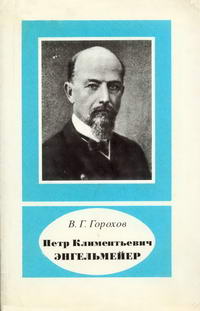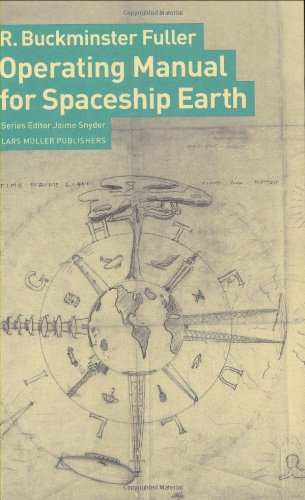Vitaly G. Gorokhov: Peter Klimentjevich Engelmeyer: Mechanical Engineer and Philosopher of Technology, 1855-1941 (1997) [Russian]
Filed under book | Tags: · biography, engineering, philosophy of technology, russia, technology

P. K. Engelmeyer was an engineer, philosopher of technology and creativity, encyclopedist, musician and painter. In his time, he belonged to the influential engineers, consultants, contractors and representatives in national and international technical organizations.
Inspired by the writings of a number of philosophers (Ernst Mach, Ernst Kapp, Alfred Espinas, Fred Bon), Engelmeyer set out to contribute to the emerging field of philosophy of technology. In 1898, he published the book Technical Summary of the 19th Century, in which he outlined main tasks and the program of the philosophy of technology.
He used the concept of “technology” [техника] in a broad sense to signify all the human knowledge and skills aimed at practical goals. In this sense, “technology” included: firstly, applied mechanics, physics, chemistry; secondly, the mechanical and chemical technology, metallurgy, architecture, art of engineering of buildings, shipbuilding, fortification; thirdly, all crafts; fourthly, agricultural technics; and finally, social and moral reasoning.
В книге описывается жизнь и деятельность выпускника Императорского Московского технического училища, инженера-механика и изобретателя, выдающегося философа техники, создателя теории технического творчества и автора первых русских работ по привилегированию изобретений Петра Климентьевича Энгельмейера. Годы жизни Энгельмейера пришлись на сложный период российской истории после отмены крепостного права и развития промышленной России вплоть до Великой Отечественной войны. Его судьба тесно связана с судьбой российского инженерного корпуса. В связи с этим в книге исследуется развитие профессиональной организации инженеров (прежде всего Московского политехнического общества, Императорского Русского технического общества, Всероссийской ассоциации инженеров) в России, их гуманитарной деятельности и связей с такими обществами в других странах (прежде всего с Союзом немецких инженеров), а также высшего технического образования. Исследуется возникновение философии техники как нового направления научно-философской и инженерной мысли в конце IX — начале XX в. Рассматриваются многочисленные труды П. К. Энгельмейера по философии техники, теории творчества, изобретательства, проектирования и др. Для читателей, интересующихся историей российского инженерного корпуса, философией техники и теорией творчества.
Русский инженер и философ техники Петр Климентьевич Энгельмейер (1855–1941)
Publisher Nauka, Moscow
223 pages
PDF (DJVU)
Engelmeyer at Monoskop wiki
Peter H. Kahn, Jr: Technological Nature: Adaptation and the Future of Human Life (2011)
Filed under book | Tags: · animal, cognition, engineering, nature, robotics, technology

Our forebears may have had a close connection with the natural world, but increasingly we experience technological nature. Children come of age watching digital nature programs on television. They inhabit virtual lands in digital games. And they play with robotic animals, purchased at big box stores. Until a few years ago, hunters could “telehunt”—shoot and kill animals in Texas from a computer anywhere in the world via a Web interface. Does it matter that much of our experience with nature is mediated and augmented by technology? In Technological Nature, Peter Kahn argues that it does, and shows how it affects our well-being.
Kahn describes his investigations of children’s and adults’ experiences of cutting-edge technological nature.He and his team installed “technological nature windows” (50-inch plasma screens showing high-definition broadcasts of real-time local nature views) in offices on his university campus and assessed the physiological and psychological effects on viewers. He studied children’s and adults’ relationships with the robotic dog AIBO (including possible benefits for children with autism). And he studied online “telegardening” (a pastoral alternative to “telehunting”).
Kahn’s studies show that in terms of human well-being technological nature is better than no nature, but not as good as actual nature. We should develop and use technological nature as a bonus to life, not as its substitute, and reenvision what is beautiful and fulfilling and often essentially wild in our relationship with the natural world.
Publisher MIT Press, 2011
ISBN 0262113228, 9780262113229
230 pages
PDF (updated on 2012-8-1)
Comment (0)R. Buckminster Fuller: Operating Manual for Spaceship Earth (1968)
Filed under book | Tags: · architecture, earth, engineering, sustainability, synergy, systems theory

“In this essay on man Mr. Fuller expresses what may well be his penultimate view of the human condition. Here, in a mood at once philosophical and involved, Mr. Fuller traces man’s intellectual evolution and weighs his capability for survival on this magnificent craft, this Spaceship Earth, this superbly designed sphere of almost negligible dimension in the great vastness of space.”
HTML (from bfi.org, via Internet Archive, updated on 2015-1-16)
EPUB, MOBI (thanks Marcell Mars; updated on 2015-1-16)

